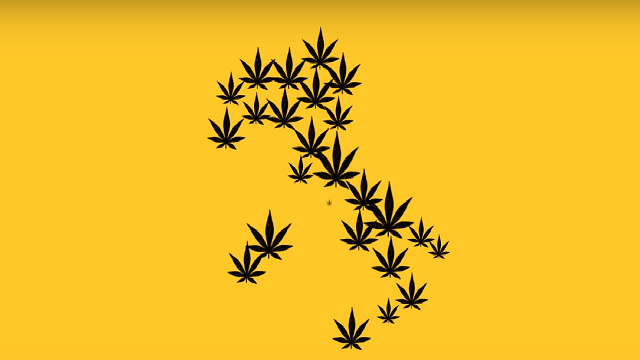“The question is no longer whether cannabis will be legalized, but when.” Watch this 3 minutes animated video clip produced by a member of our global video network, CILD, explaining why cannabis should be legalized in Italy!
In July 2016 the marijuana legalisation bill – signed by a group of 300 parliamentarians from different political groups – was presented to the Italian Chamber of Deputies. This was the first time the issue of legalisation had ever been discussed in the Italian Parliament. However, the proposal was immediately returned to the parliamentary committees and, since then, no progress has been achieved whatsoever.
Italian legislation is highly oriented towards criminalisation, including prison sentences of up to 20 years for drugs such as heroin or cocaine, and up to 6 years for cannabis. From 2006 to 2014 the so-called Fini-Giovanardi law on drugs eliminated the distinction between soft and hard drugs, and imposed penalties of up to 20 years in prison regardless of the type of substance. The law, however, was then repealed by the Constitutional Court due to problems with the manner in which it had been approved.
These policies have led to mass imprisonment. When the Fini-Giovanardi law was in force, over 40% of detainees were in jail for drug-related crimes. These numbers contributed to prison overcrowding, which in turn led to Italy being convicted by the European Court of Human Rights for failing to guarantee at least 3m2 to any detainee. After the repeal of the law and conviction by the European court, numbers slightly improved; nevertheless, 34% of Italian detainees (amounting to more than 18,000 prisoners) have been imprisoned for drug-related crimes. Their detention costs around 1 billion euros per year, in addition to the budget of approximately 200 million euros slated for police forces engaged in drug operations, and the close to 10 million euros in court fees. And yet, despite this repressive apparatus, drugs continue to be widely used in Italy. The most recent official figures suggest that, in 2013, 10% of the Italian population had used cannabis (over 6 million people), in so doing providing huge earnings to those criminal groups which control the market. Furthermore, in 2013, national accounts evaluated that almost 70% of all illegal activities in Italy were drug-related, accounting for about 0.9% of GDP.
Legalising cannabis would allow the state to save billions of euros and earn as much as possible through taxation. According to recent studies, the figure would be somewhere between 7 and 13 billion euros every two years with the possibility of creating around 200,000 jobs in a country with a relatively high unemployment rate (11%). Part of the money could be invested in informative and harm reduction policies, policies in which little has been invested so far.
Italian civil society has also been very active in supporting the legalisation of marijuana. In November, more than 60,000 signatures were gathered through a popular initiative supporting the marijuana legalisation bill in Parliament. Legalising cannabis would be an act of common sense and, as underlined by the senator of the Parliamentary intergroup which proposed the law, Benedetto Della Vedova, “the question is no longer whether cannabis will be legalised, but when”.
We are working to make that happen as soon as possible.
Andrea Oleandri





